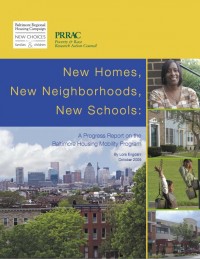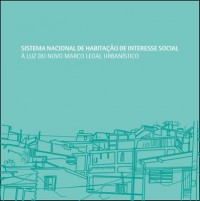The right to housing in practice
Learn about concrete initiatives of governments, organisations of the civil society and of citizens themselves that implemented the right to housing. Here you find examples of initiatives in the legal area, as well as housing projects, policies and programs that, in practice, concretised this right. If you know of other examples, share them in this space. For that purpose, contact the Rapporteur, sending information for publication in this section.
Published in Wednesday January 11th, 2012
This best practice is an example of a program designed to enhance mobility for disadvantaged families by offering targeted housing vouchers and mobility services to low income families who wish to move from high poverty to low poverty communities in the Baltimore region.
Published in Tuesday January 10th, 2012
The International Alliance of Inhabitants launched the Zero Evictions Campaign at the 4th World Social Forum (Mumbai, January 2004). The aim is to secure housing rights for all. If tenants have to be transferred, decent, secure alternative accommodation should be found in advance and with the agreement of the inhabitants concerned, as per international human rights standards.
Published in Thursday July 29th, 2010
The World Assembly of Urban Inhabitants was an important fora for debate organized by housing movements in the turn of the 21st century. It took place in Mexico City, from October 2 to 6, 2000.
Published in Friday July 23rd, 2010
Due to a process of real estate valorization and as a consequence of the international financial crisis, a number of evictions took place in France caused by tenants’ lack of economic capacity to pay rental fees.
Published in Friday July 23rd, 2010
The law’s objective is to detail the principles and rules under which public initiatives concerning the right to housing will be developed.
Published in Friday July 23rd, 2010
The Adequate, Accessible and Affordable Housing Act establishes the compulsory development of a participatory National Housing Strategy designed to respect, protect, promote and fulfill the right to adequate housing as guaranteed under international human rights treaties.
Published in Thursday July 22nd, 2010
The City Statute (Law No. 10.257/2001) was adopted in 2001 to regulate articles 182 and 183 of the Brazilian Constitution, which state that municipalities shall set up urban development policies for the realization of the ‘social function of cities’, aiming at the wellbeing of their inhabitants.
Published in Thursday July 22nd, 2010
The Social Interest Housing System was established in Brazil by the Federal Law Nº 11.124, in June 16th, 2005. The law’s objective is to detail the principles and rules under which public initiatives concerning the right to housing will be developed.
Published in Saturday March 20th, 2010
The land policy of the city of Hong Kong is based on a land lease instrument: the government purchases rural properties in the zones of future urban expansion, in order to lease them to entrepreneurs, and thus charges for their use and invests it in the city’s infrastructure.
Published in Saturday March 20th, 2010
A possible alternative in cases where a definitive solution of adequate housing is not ready, is the support to the temporarily displaced through financial subsidies for access to housing units of third parties.



